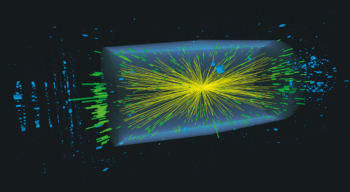
Personal computers are steadily making inroads into some specialist and very impersonal fields. One example is particle accelerators, and the impact of PCs was described in the Third International Workshop on PCs and Particle Accelerator Controls (PCaPAC), which was held recently at DESY.
From its inception in 1996, PCaPAC has specifically targeted the use of PCs in accelerator controls and has shown itself to be a valuable workshop in giving participants a chance to exchange ideas and experience in PC-related technologies, where trends can change rapidly. Participation in PCaPAC 2000 reached an all-time high of 93 contributions and 127 registered attendees from 43 different institutes and 17 countries.
At PCaPAC 2000, many running accelerators, the control-system infrastructure of which was based either entirely or in part on PCs, were presented. Among these were small systems built and maintained by a few people (e.g. the storage rings ASTRID and ELISA of the ISA Storage Ring Facilities at University of Aarhus in Denmark), medium-scale systems (e.g. the ANKA synchrotron light source in Karlsruhe, and accelereators at KEK in Japan) and the, probably, largest PC-based control systems for the HERA, PETRA and DORIS storage rings and their injectors at DESY in Hamburg.
Industrial solutions were also presented, covering complete packages, such as Supervisory Controls and Data Acquisition (SCADA) systems, as well as control systems based on Common Object Request Broker Architecture (CORBA) or Distributed Component Object Model (DCOM). In this vein, a joint venture between KEK and IT -Industry was presented, where a new Component Oriented Accelerator Control Kernel (COACK) was demonstrated.
In several cases, strategies to convert from legacy systems to modern ones and/or to integrate different platforms were presented. The distributed nature of PC control systems is manifest in the important role that is played by system administration. Also discussed were the needs and wishes of the accelerator operators regarding the control system as well as different approaches to supplying the optimal console profile to different and roaming users.
There were three special “tutorials”. First, a representative from CISCO described networking trends in the next three years of campus networks. Another covered “SCADA – current state and perspective”, when participants could get a real feel for both SCADA systems and trends in the field. Finally, as interest in such modern innovations as Java and CORBA remains high, whereas the number and variety of associated buzzwords make these subjects daunting for the uninitiated, a tutorial on these topics was also included.
While there is significant overlap in topics with the much larger ICALEPCS conference (see Computer control of physics is increasing), PCaPAC has nonetheless found its niche as a biennial workshop, alternating with ICAPLEPCS. The pace at which computer hardware and software as well as the Internet evolve is fast, so an event such as PCaPAC, where topics, trends and problems can be discussed in a workshop atmosphere, has been seen to be not only worthwhile but enthusiastically accepted by the controls community. For instance, in the category of Future Trends and Technologies, participants saw their first glimpse of data exchange via SOAP (Simple Object Access Protocol) and XML (Extensible Markup Language).
The Fourth International Workshop on PCs and Particle Accelerator Controls will be held in the autumn of 2002, in Asia or Italy.





